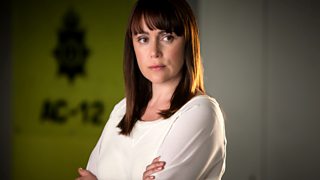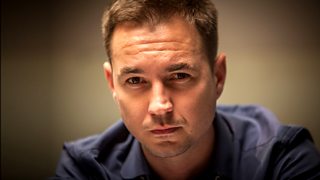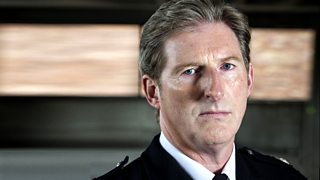No one was more surprised than me by the success of the first series of . After a of what might be called cult hits β and one or two misses β it was extraordinary to be part of a programme that was βs highest performing drama series in a decade. I was reminded of the final scene of the early 70s political satire . Robert Redford plays the outsider in a Senate election. He conducts an eccentric campaign on the assumption heβs doomed to lose, but his candour wins over voters and he triumphs. As his team celebrate, he pulls his campaign manager aside and asks, in bemusement, βWhat do we do now?β

Detective Constable Kate Fleming played by Vicky McClure
The development process on the second series of Line of Duty began as soon as the recommission was confirmed in August 2012. Shooting of six new episodes was scheduled to begin in April 2013. Storylining meetings involved my pitching ideas at World Productions to Simon Heath, Executive Producer, and Priscilla Parish, Script Editor, after which we conferred with Stephen Wright, Head of Drama at ΒιΆΉΤΌΕΔ Northern Ireland, and Ben Stephenson, Controller of Drama at the ΒιΆΉΤΌΕΔ.

Detective Inspector Lindsay Denton played by Keeley Hawes
Line of Duty had originally been conceived as a returnable drama, with the premise being that the fictional anticorruption unit AC-12 would move on to a new case in each series, centred on a high-profile antagonist accused of corruption. The character of would be a contrast to from Series 1, and we would also depart from the open mystery whereby the audience witnessed Gatesβ secrets and dilemma while AC-12 played catch-up. Denton hides her secrets from both the audience and AC-12, making Series 2 more of a whodunit (and whydunit). It was also very important for the long-term development of the returning characters that we portrayed more of their personal lives.

Detective Sgt Steve Arnott played by Martin Compston
I was grateful that the ΒιΆΉΤΌΕΔ and World Productions agreed that I could write the whole series, which meant it was possible to employ the same process as before. I would write episode by episode and would try to avoid revealing too much about how the later story develops. This approach allows the series to be constructed along the model of how the audience will watch it. I was concerned that too rigid an adherence to defined plot points in later episodes would restrict the dramatic potential of the preceding ones.

Supt Ted Hastings played by Adrian Dunbar
In general, I delivered a two-page outline of the episode, Simon, Priscilla and I would discuss improvements, and then Iβd write the episode. Sometimes I found it necessary to depart from the outline, if things didnβt work, or they seemed too dull on the page. Once an episode was in good shape, usually after a couple of drafts, Iβd move on to the next. As we neared production, the drafting process got more intense, with input from all departments, the cast and the directors. Episode 6 went through about 10 drafts!
Line of Duty returns to ΒιΆΉΤΌΕΔ Two on Wednesday 12 February 2014 -
